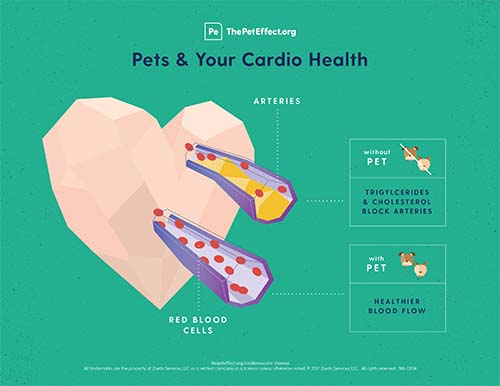HABRI Partners with Greater Good Charities to Match Frontline Disaster Needs with Providers of Pet Food, Medicine and Supplies
Washington, D.C. (August 16, 2021) — The Human Animal Bond Research Institute (HABRI) announced today that The Pet Giving Network, launched in collaboration with the Greater Good Charities, is open and ready to serve as a vital resource to connect the pet care community with frontline rescuers helping pets in need. Those interested in becoming Pet Giving Network Partners can sign-up today at www.habri.org/giving-network.
“With wildfires raging and hurricane season upon us, it is important to recognize that pets are vulnerable, and resources allocated to helping pets threatened by disasters are often scarce. When pets are in danger so are their owners, which is why it is so important for the pet care community to be organized and ready to provide help,” said Steven Feldman, president of HABRI.
The Pet Giving Network allows interested companies and organizations to register as Pet Giving Network Partners, which connects them to a system of action alerts about specific pet needs. Partners can offer to donate supplies and resources, which are then reviewed by a member of the Pet Giving Network team so the donation can be connected to rescuers on the ground. After matching these donated supplies to a recipient, Greater Good Charities coordinates with entities in regions affected by natural disaster ensure that supplies are delivered where and when they are needed, avoiding unnecessary waste and allowing organizations around the country to act as a united pet care community when disaster strikes.
“The World Pet Association couldn’t think of a better time than during SuperZoo 2021 to spotlight the Pet Giving Network,” said Vic Mason, President of the World Pet Association. “We look forward to working with our members and HABRI to support this important initiative, which will save the lives of many pets in need.”
“The Pet Giving Network is a wonderful example of the good that the pet care community can do when we work together,” said Steve King, President and CEO of the American Pet Products Association (APPA). “We are especially grateful for Julia Fidenzio-Alicea, APPA Vice President of Government Affairs & General Counsel, who has been instrumental in launching the Pet Giving Network and making it an ongoing success.”
The Pet Giving Network has already made a real difference in times of crisis. In 2017, dozens of pet care companies rallied together to provide food, supplies and medicine to rescue organizations, evacuation facilities and pet owners in the wake of Hurricanes Harvey and Irma.
“HABRI is proud to be working alongside the World Pet Association (WPA), American Pet Products Association (APPA), and the Pet Industry Distributors Association (PIDA) and their members who have a strong and longstanding commitment to supporting this important initiative,” added Steven Feldman. “Together, we will work to strengthen and support the human-animal bond, especially in times of disaster.”
About HABRI
HABRI is a not-for-profit organization that maintains the world’s largest online library of human-animal bond research and information; funds innovative research projects to scientifically document the health benefits of companion animals; and informs the public about human-animal bond research and the beneficial role of companion animals in society. For more information, please visit https://www.habri.org/.
About Greater Good Charities
Greater Good Charities is a 501(c)(3) national nonprofit organization, with a 100/100 rating on Charity Navigator, that works to amplify the good in the world to improve the health and well-being of people, pets, and the planet. Since 2007, Greater Good Charities has given over $350 million in cash and in-kind grants to over 5,000 charitable partners worldwide and funded projects in 121 countries. To date, Greater Good Charities has provided over $28 million in support for COVID-19 disaster-relief, including cash grants, in-kind supplies, and programmatic support. To learn more about how Greater Good Charities is amplifying the good across the globe, please visit greatergood.org or follow Facebook, Instagram, Twitter, YouTube and TikTok.
Contact
Jamie Baxter
jamie@theimpetusagency.com
775.322.4022
###





